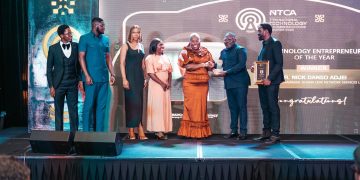Sharing the Recovery: SDR channeling and a new trust
One of the most significant measures introduced by the International Monetary Fund in response to the global pandemic was the recent historic allocation of Special Drawing Rights, or SDRs.
The challenge now is to ensure this distribution is redirected—or channeled—to where the need is greatest. To that end, we are exploring three options to enable more resilient and sustainable economic futures for the poorest and most vulnerable countries.
The IMF’s response to COVID-19
Since the onset of the COVID-19 pandemic, the IMF has lent nearly $117 billion to 87 countries. We reshaped our lending policies to enhance our support to members, and recently reformed our concessional lending policy framework under the Poverty Reduction and Growth Trust (PRGT) to expand our lending to low-income countries.
We have also joined forces with the other international organizations to help accelerate the global vaccine rollout, and improve access to non-vaccine therapeutics and diagnostics.
But we didn’t stop there. The historic SDR allocation, back in August, equivalent to $650 billion, boosted liquidity and reserves around the world. About $275 billion of that $650 billion went to emerging and developing countries, and low-income countries received about $21 billion, equivalent to as much as 6 percent of GDP in some cases.
Putting SDRs to work
The task now is to redirect the SDRs to their greatest effect. The International Monetary and Financial Committee, and leaders of the G7 and G20 called on the IMF to explore ways in which countries with strong external positions could voluntarily channel some of their SDRs to poorer and more vulnerable countries.
Against this backdrop, we are exploring three (non-mutually exclusive) options:
Increase the size of the PRGT on which we are already making good progress. Pledges of $24 billion in loan resources have already been received in the last 16 months, including $15 billion from existing SDRs.
But the journey is far from complete. Additional resources of around $28-50 billion are still needed to allow the IMF to better respond to the financing needs of our low-income members over the coming years. We also need grant contributions of SDR 2.3 billion for the subsidy account to continue lending through the PRGT at zero interest rates; fundraising efforts are ongoing.
Create a new IMF-administered Resilience and Sustainability Trust, or RST.
Channel SDRs to other prescribed SDR holders, comprising 14 organizations including the World Bank, some regional central banks, and multilateral development banks.
A new trust with a long-term purpose
Even as we fight this current pandemic, we cannot lose sight of other long-term challenges that countries face as we rebuild the global economy. We are experiencing a changing climate, increasing inequality, changing demographics, and a breakneck pace of digitalization, to name just a few.
These long-term structural challenges put vulnerable countries at risk of falling further behind. Often, these challenges go unaddressed because of financing and capacity constraints. Not implementing these reforms, however, puts at risk external, social, and economic stability.
The proposed RST would support policy reforms to help build economic resilience and sustainability, especially in low-income countries and small states, as well as vulnerable middle-income countries. It would aim to support access to more affordable financing by lending at cheaper rates and with longer maturities than the IMF’s traditional lending terms. Consistent with the IMF’s mandate, this financing would help be focused on balance of payments stability.
Read: AfDB blacklists Kenyan IT company over fraud
The purposes of the funding would be reached by consensus across the membership. For example, climate might be one, but there are several other worthy global public policy goals that may need to be considered such as pandemic preparedness.
For most creditors, channeled SDRs have to maintain their reserve asset status. This requires ensuring that the trust provides liquidity, and the ability of creditors to encash quickly should they have a balance of payments need, and finally, adequate credit risk protection for the donors.
We also propose developing a multi-layered credit risk protection framework that includes policy safeguards, financial buffers, and a diversified creditor and borrower base that would ensure that loans to the trust are sufficiently safe and liquid so that channeled SDRs can maintain their reserve asset status. In addition, since RST lending would likely “top up” a regular IMF-supported program, it would benefit from the accompanying strong policy safeguards, to ensure macroeconomic stability.
We are also working on several additional design features such as size of the trust, eligibility perimeter, conditionality, lending terms, and the financial architecture. We continue to engage with our membership and other stakeholders to ensure full buy-in, while working closely with other international financial institutions, especially the World Bank, to ensure that the RST is a part of a broader strategy for international country assistance, leveraging the respective mandates of each institution. We believe the membership will benefit from such an approach.
Getting across the finish line
The world has an historic opportunity to use the recently allocated $650 billion SDRs to help poorer countries in a way that promotes the global public policy agenda.
Building consensus is never easy; it takes time. Creative solutions are needed to bridge differences. We are confident that with the international community’s support, the RST is one such innovative solution which could become operational in just over a year. We are hopeful of further progress at the upcoming Annual Meetings. The pandemic has shown us the importance of working collectively. And together, we can tackle the greatest challenges we now face for a better future for everyone.








